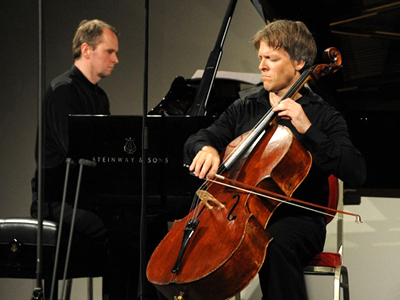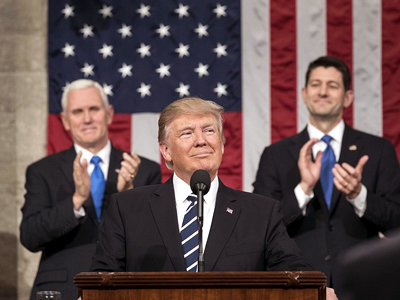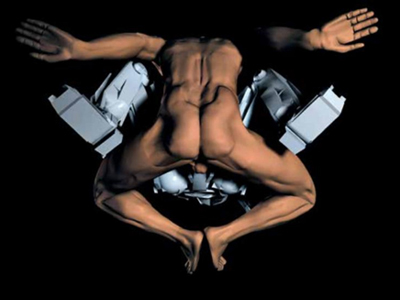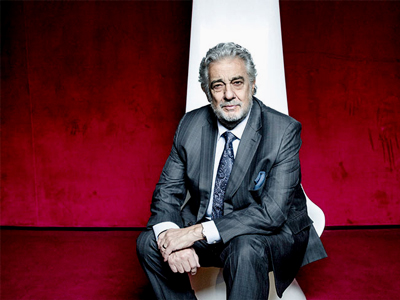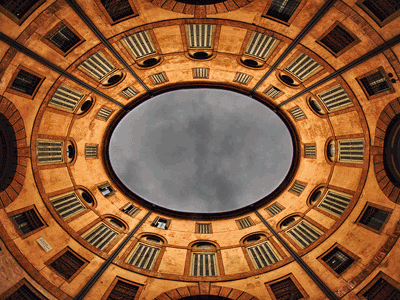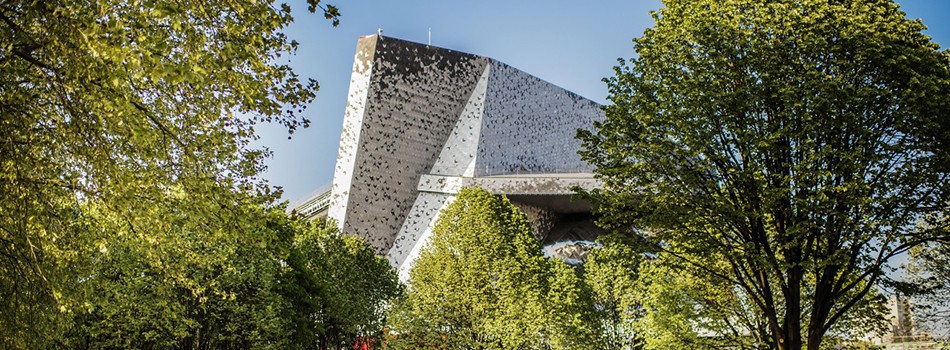By Brian Taylor Goldstein, Esq.
By now, you should all be aware that the incidents of artists and performers from a wide range of nationalities arriving in the United States as visitors (either on visitor visas (B-1/B-2) or through the visa waiver/ESTA program) and being refused entry are growing at an alarming rate. These artists are being pulled aside, subjected to hours of questioning, and, in many instances, being handcuffed and held overnight until return flights become available…all without the benefit of being able to contact anyone or seek counsel.
We should all be angry and outraged. However, the value of general cathartic explosions notwithstanding, it is important to know whom to blame and where to focus all of the outrage and anger.
First and foremost, unlike some artists and others have asserted, no laws or regulations have been changed with regard to the visa waiver/ESTA program. To the contrary, ever since the United States immigration laws were overhauled in the 1990s, it has always been the case that artists are not permitted to perform in the US either on visitor visas or through the visa waiver/ESTA program regardless of whether or not artists are paid or whether or not tickets are sold. In order to perform, artists must have an appropriate artist visa—which, in most cases, is going to be either an O visa or a P visa.
Very often, an artist, manager, or presenter will contact our office in situations where there has been a list minute engagement opportunity and there is no time for an artist to obtain an O or P visa. They will almost always ask whether the artist can perform without an O visa or P visa if the artist does not get paid—or, worse, presume that this is the case. No! Payment—or lack thereof—is not the deciding factor. The deciding factor is whether or not there is an audience.
One of the few exceptions to this counter-intuitive restriction is that an artist may enter the US either on a visitor visa or through visa waiver/ESTA provided the artist’s sole purpose is to audition or perform a showcase for the sole purpose of obtaining future work and engagements and provided ALL of the following requirements are met:
(1) The artist is not being paid;
(2) The performance is closed to the public; AND
(3) The performance is restricted to promoters, managers, presenters, bookers or other industry professionals who book or engage artists.
Merely calling a performance a “showcase” does not make it a showcase. Performing, even for free, in the hopes of obtaining future engagements is not sufficient. Rather, the narrow crack in the otherwise strict prohibition against artists performing without an O visa or P visa was created purely to allow artists to attend booking conferences (such as Arts Midwest, PAE, or APAP) or a traditional audition where the artist performs before a few gruff and aloof producers or directors. If at any time the general public is allowed to attend (even if no tickets are sold), then it is not considered an “audition” or “showcase” and the exception does not apply. Accordingly, promotional and publicity tours do not qualify either. Similarly, if an artist is entering to perform as part of training program and the performance is open to the public, the exception also does not apply.
As to why such onerous restrictions were ever enacted in the first place, the “official” argument is that it was to protect the United States labor market. True as this may be, it reflects an offensive disregard of the fact that artists are unique and all performances, good or bad, are distinctive. Unlike non-US manufacturing labor who arguably may have similar training and experience as their US counterparts, non-US artists cannot merely be substituted or swapped for a US alternative who just happen to have similar technical abilities. If you have seen one artist, you most definitely have not seen them all. However, without in the least defending these regulations, it is worth bearing in mind that the United States has no Ministry of Culture to advocate policy on behalf of arts and artists. Rather, the arts must rely upon a loose coalition of independently funded arts advocates and institutions whose impassionate pleas are shouted from the wastelands of Whoville. While we also have a National Endowment for the Arts titularly funded by the government, it is purely a granting institution which admirably struggles to disburse crumbs and scraps to the artists crowded at the children’s table—and which, as of today, President Trump has proposed to eliminate entirely.
Nevertheless, for many years festivals, presenters, venues, schools, and others have expanded and relied upon the narrow “audition” or “showcase” exception by providing artists with a letter asserting that an artist is entering to perform an “audition” or “showcase”, is not being paid, and that the audience is restricted only to industry professionals. With only the rarest of exceptions, this usually worked. To be fair, it probably shouldn’t have worked as often as it did, but no harm no foul.
Then came President Trump.
Without having to amend or change any existing laws, the recent Executive Orders have imposed immediate “heightened scrutiny” and “extreme vetting” at all levels of the immigration process by mandating strict enforcement of laws and regulations already in place. (Sadly, these particular directives are not amongst those subject to the recent judicial restraining orders and stays.) As a result, we have entered a new era whereby all immigration officers, examiners, and other officials have now been instructed to “believe none” and “suspect all.”
For those of us in the arts and entertainment field, this means that artists who have hitherto had little trouble entering and performing either on a visitor visas or through visa waiver/ESTA—even in those instances where they were never supposed to do so—are now being stopped, questioned, and turned away. Just as bad, artists such as authors, painters, and designers who are legitimately entering the United States as visitors to attend conferences or to attend performances or exhibitions of works they created entirely outside of the US are now at a greater risk of being turned away merely by admitting that they are artists and do not have an artist visas.
As I was once taught by a senior attorney whom, in retrospect, should never really have been mentoring anyone in the first place, solving any problem first requires the assessment of blame. In this case, as frustrating as it is, it is not entirely appropriate to blame immigration or consular officers who, however aggressively, are being instructed to enforce laws that have always been there to enforce. Nor is it reasonable to presume a vast conspiracy focused on artists from specific countries. Rather, a more reasonable assessment of culpability would be as follows:
(1) The immigration laws and regulations that have always been unreasonable and unduly burdensome for decades with regard to artists, but which have gone unchallenged and mostly unnoticed because they were unenforced without any degree of consistency.
(2) The venues, record labels, managers, and others who offhandedly give artists bad advice with the air of authority, but without the burden of accuracy.
(3) The artists who are all too willing to accept without challenge the venues, record labels, and managers so long as they are being told what they want to hear.
(4) The United States government which, as opposed to targeting artists with the explicit intention of thwarting efforts to promote tolerance and understanding through artistic exchange, is oblivious that the arts exist in the first place, much less serve any purpose.
(5) The White House for boastfully implementing a new paradigm whereby all are presumed guilty until proven innocent.
Aside from continuing to shout, scream, and protest through every available platform, what’s to be done?
(1) Whether you believe an artist requires a visa or not, if it is at all possible for an artist to obtain a visa, do so.
- Having an O or P visa does not guaranty entry as both consulate officers and immigration offers have the unrestricted authority to deny visas or deny entry at any time for any reason. However, having an actual O or P visa in an artist’s passport will go a long way towards ameliorating the immediate presumption of an immigration officer that an artist arriving as a visitor is doing purely to threaten our way of life.
(2) If an artist legitimately meets the narrow “audition” or “showcase” exception, then the artist needs to be properly briefed and prepared as to what to expect and how best to answer invasive and probing questions in an atmosphere of stress and intimidation
- This means that, in addition to providing a letter from the festival, presenter, or venue, the artist should also be armed with documentation about the booking conference or audition itself—such as a list of attendees, information about the production or entity for whom the artist is auditioning, etc.
- Make sure there are no press releases, announcements, or other information on either the artist’s or venue’s website (or anywhere on the internet for that matter) suggesting or announcing that that artist is “touring” or “appearing” in the United States, much less providing a schedule of US engagements—particularly since, legally, there can be no US engagements!
- The artist should have return tickets already booked to establish that the artist will only be staying in the United States for the time necessary to arrive, audition, and leave.
(3) Review an artist’s prior travel to the United States to make sure they have not previously engaged in any un-authorized performances and, if so, be prepared to address this.
(4) Make sure an artist has at least a few materials (such as reviews or CDs) establishing that the artist is, in fact, an artist.
(5) Whether you’re dealing with immigration, royalties, contracts, or licensing, Artists need to be at the forefront of their own business. Don’t presume the people advising you are knowledgeable or even have your best interest in mind. At the end of the day, if you have to cancel a performance or, worse, get deported, the festival, venue, or manager will move on. Its YOUR career on the line!
(6) Lastly, if an artist does get stopped, pulled aside, and faces the possibility of a refused admission, the artist should voluntarily request to withdraw his or her request to enter the United States and voluntarily offer to return home. Voluntarily withdrawing a request to enter does not count as a “denied entry” and will not blemish an artist’s immigration record for future travel. On the other hand, insisting on entry and then being “denied entry” and forcibly returned can have serious implications on future travel.
We are all on a roller coaster that shows no signs of slowing down. As we continue to hold on to the bar, we also continue to recommend that everyone consistently check with reliable sources (ie: not chat rooms or random google searches) for updates and developments before making any travel decisions, applying for visas, booking foreign artists, or entering to perform on visitor visas or through the visa waiver/ESTA program. We recommend:
1) www.artistsfromabroad.org
2) The USCIS website: www.uscis.gov
3) The US Department of State website: www.travel.state.gov
4) The US Customs and Border Patrol website: www.cbp.gov
5) The American Immigration Lawyers Association (www.aila.org)
And we will continue to update on our blogs, social media, and newsletters as changes occur.
__________________________________________________________________
For additional information and resources on this and other legal, project management, and business issues for the performing arts, as well as to sign up for our newsletters and follow us on social media, visit ggartslaw.com
To ask your own question, write to
lawanddisorder@musicalamerica.com
All questions on any topic related to legal, management, and business issues will be welcome. However, please post only general questions or hypotheticals. Questions will be answered ONLY in future blogs. GG Arts Law reserves the right to alter, edit or, amend questions to focus on specific issues or to avoid names, circumstances, or any information that could be used to identify or embarrass a specific individual or organization. All questions will be posted anonymously and/or posthumously.
__________________________________________________________________
THE OFFICIAL DISCLAIMER:
THIS IS NOT LEGAL ADVICE!
The purpose of this blog is to provide general advice and guidance, not legal advice. Please consult with an attorney familiar with your specific circumstances, facts, challenges, medications, psychiatric disorders, past-lives, karmic debt, and anything else that may impact your situation before drawing any conclusions, deciding upon a course of action, sending a nasty email, filing a lawsuit, or doing anything rash!
